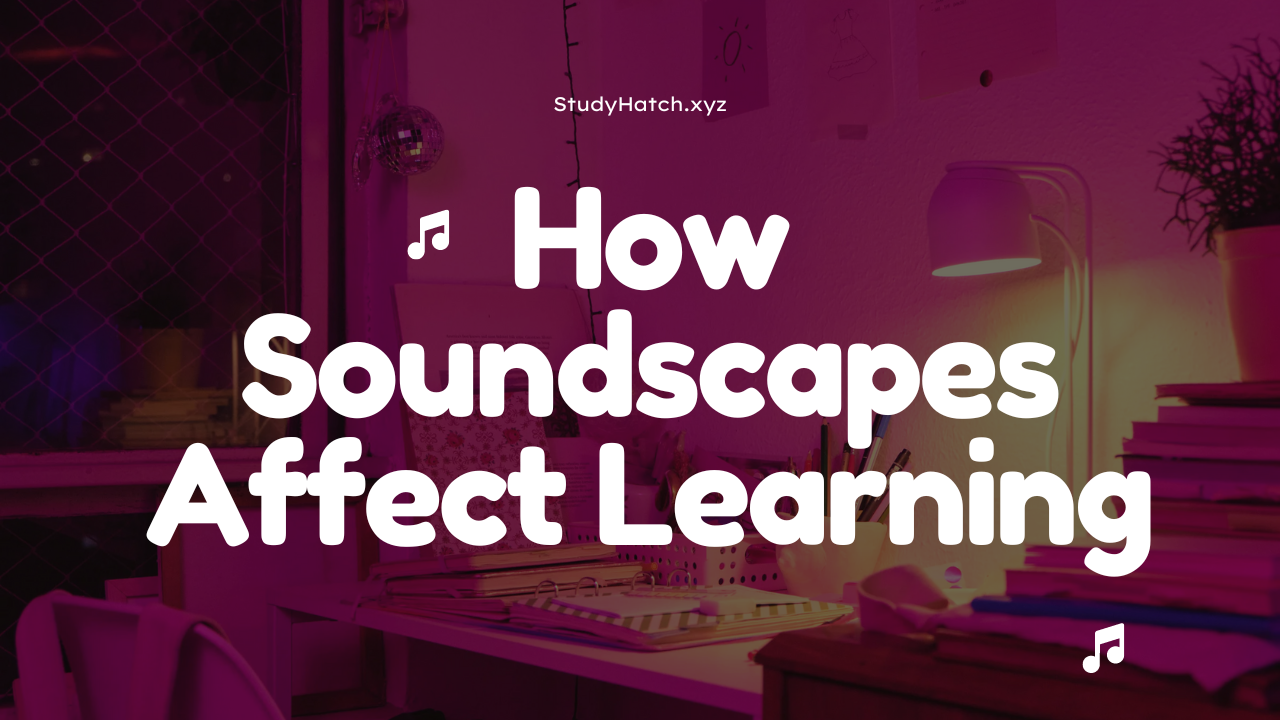The hum of a coffee shop, the rustle of leaves in a park, the pulsing beats of electronic music – each of these soundscapes can dramatically alter our study experience. But how exactly does our acoustic environment shape our ability to learn? Let’s dive into the fascinating world of acoustic ecology and uncover how the sounds around us can make or break our study sessions.
The Science of Sound and Cognition
Recent neuroscience research has revealed that our brains are remarkably responsive to auditory stimuli while we’re trying to concentrate. A 2019 study published in the Journal of Cognitive Neuroscience found that certain types of background noise can actually enhance cognitive performance by promoting a state of “stochastic resonance” in the brain.
But it’s not a one-size-fits-all scenario. Different types of sounds affect various cognitive functions in unique ways:
- White Noise: Improves focus for many by masking distracting sounds
- Nature Sounds: Can reduce stress and enhance cognitive function
- Music: Effects vary widely depending on the type and individual preferences
- Silence: Beneficial for some, anxiety-inducing for others
The Coffee Shop Effect
Have you ever noticed how some people seem to thrive working in busy cafés? This phenomenon, dubbed the “coffee shop effect,” has been the subject of several studies. A 2012 study in the Journal of Consumer Research found that moderate levels of ambient noise (around 70 decibels) can actually boost creativity and productivity.
| Noise Level | Effect on Cognition |
|---|---|
| Low (30-50 dB) | May induce focus but can be too quiet for some |
| Moderate (50-70 dB) | Often optimal for creativity and focus |
| High (70+ dB) | Usually detrimental to concentration |
Music and Memory
The relationship between music and studying is complex. While some swear by classical music, others find any melody distracting. Here’s what the research says:
- Instrumental music generally outperforms lyrical music for study purposes
- Familiar music can be less distracting than new tunes
- Tempo matters: music between 60-80 BPM often aligns well with cognitive processes
Crafting Your Ideal Study Soundscape
Given these insights, how can you optimize your study environment? Here are some practical steps:
- Assess Your Task:
- Reading/writing: Consider white noise or instrumental music
- Problem-solving: Moderate ambient noise might boost creativity
- Memorization: Try studying in silence, then recall in a similar environment to where you’ll be tested
- Experiment with Sound Apps:
- Noisli: Customize your mix of environmental sounds
- Brain.fm: AI-generated music designed for focus
- Coffitivity: Recreates the ambient hum of a café
- Create a Sound Schedule:
- Alternate between different soundscapes to maintain engagement
- Use the Pomodoro Technique with sound changes to mark study/break periods
- Consider Your Space:
- Use noise-cancelling headphones in noisy environments
- Create a dedicated study space with controlled acoustics
The Future of Acoustic Ecology in Learning
As our understanding of acoustic ecology grows, we’re seeing innovative applications in educational settings. Some forward-thinking schools are now designing classrooms with optimal acoustic properties to enhance learning. Additionally, personalized AI-driven soundscapes for studying are on the horizon, promising to tailor audio environments to individual cognitive styles and task requirements.
Conclusion: Tuning In to Better Learning
The acoustic ecology of studying is more than just background noise – it’s a powerful tool that, when wielded correctly, can significantly enhance our learning experience. By understanding how different sounds affect our cognitive processes, we can create personalized soundscapes that boost focus, creativity, and retention.
Remember, the perfect study sound is highly individual. What works for your friend might not work for you. Take the time to experiment with different acoustic environments and pay attention to how they affect your study sessions. Your ideal soundscape is out there – you just need to listen for it.
As you embark on your next study session, consider not just what you’re studying, but how you’re hearing it. Your acoustic environment might just be the key to unlocking your full learning potential.

No comments yet